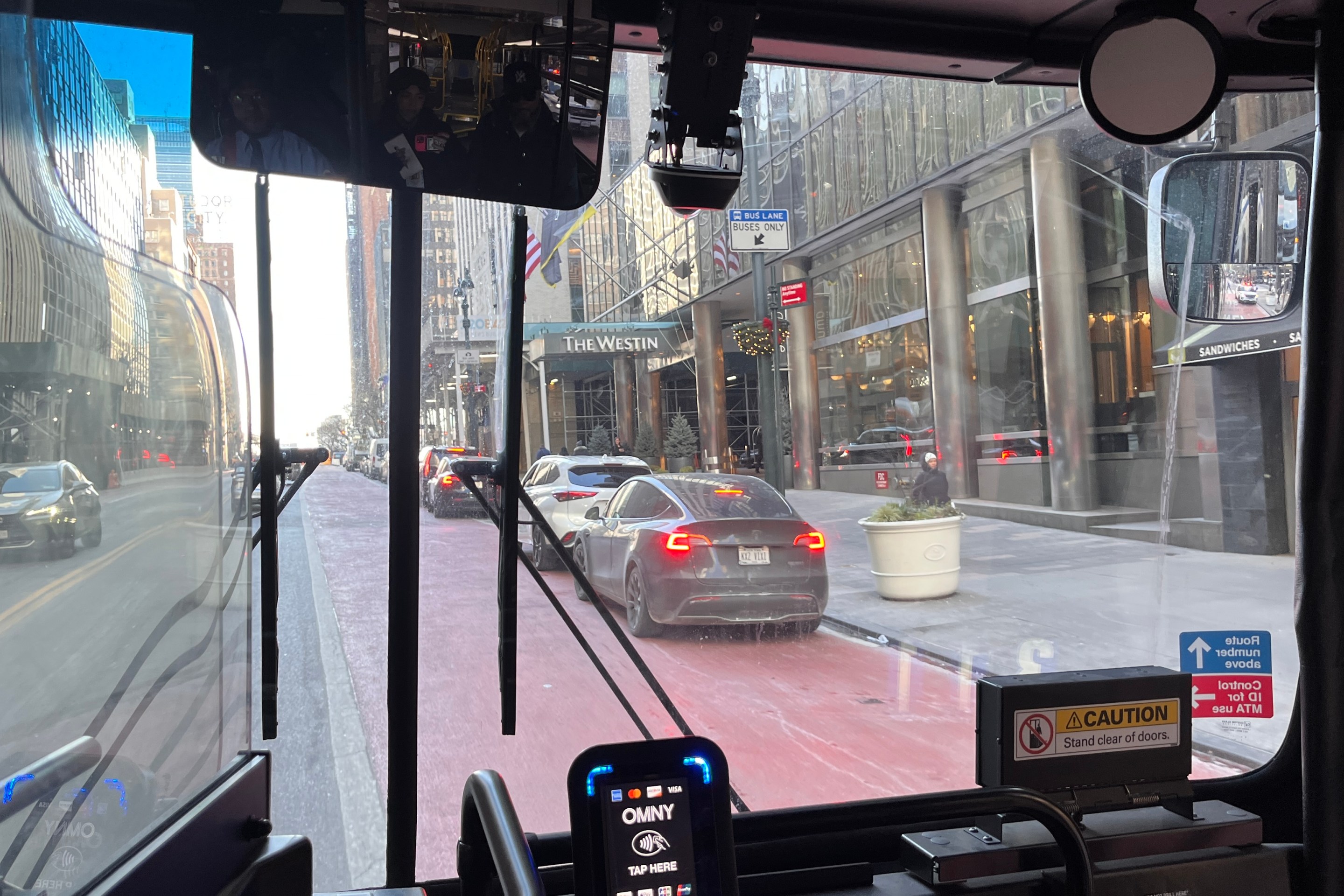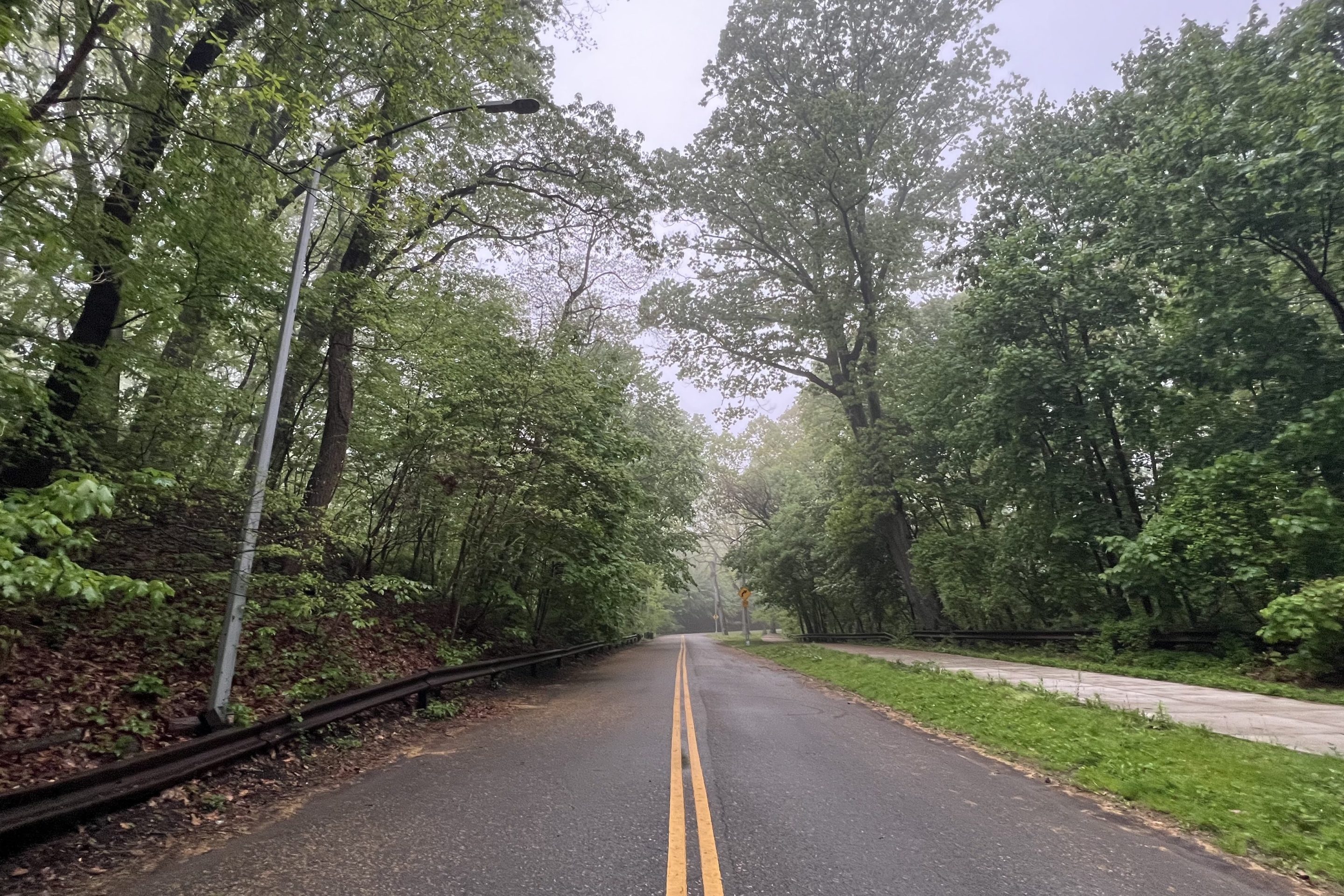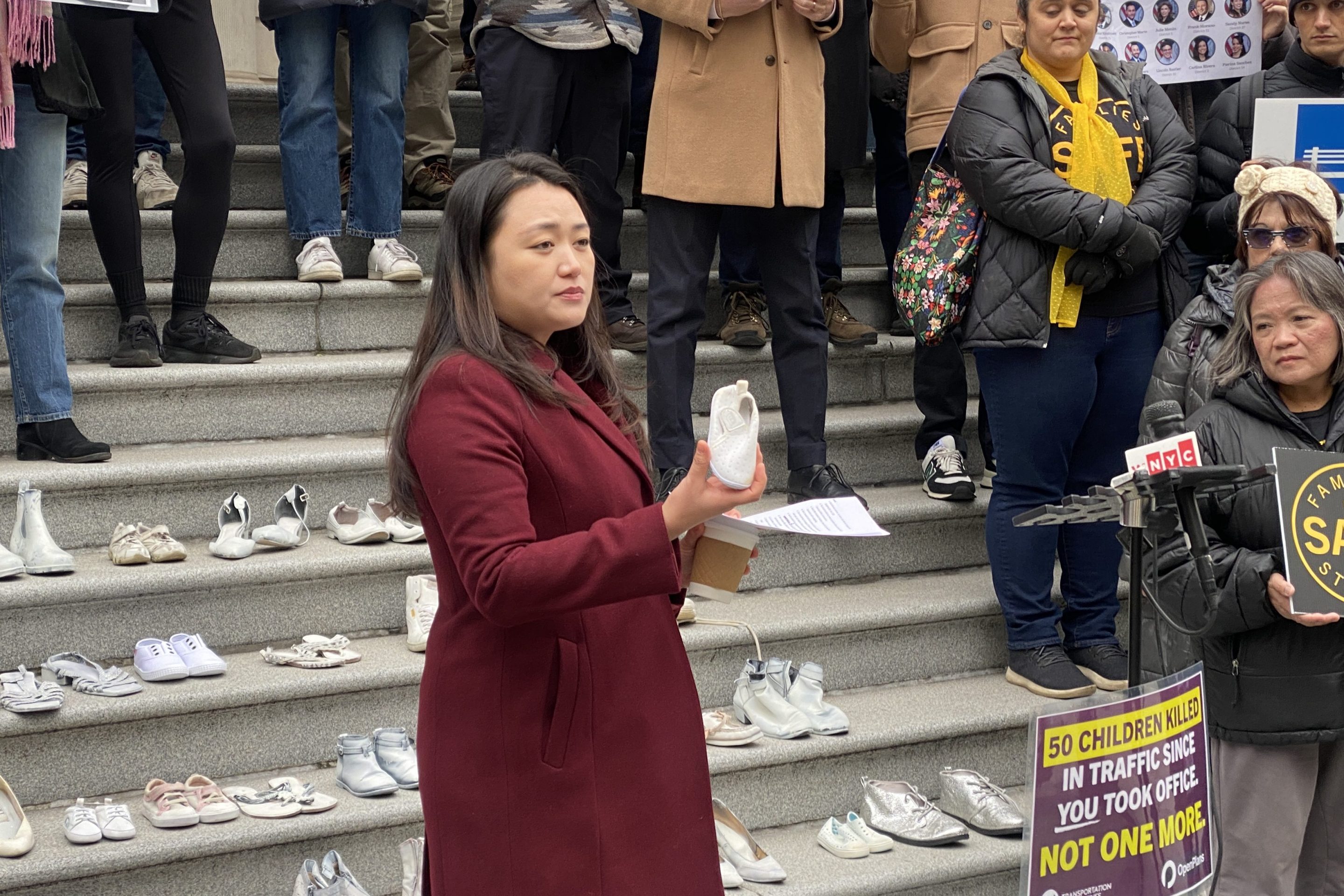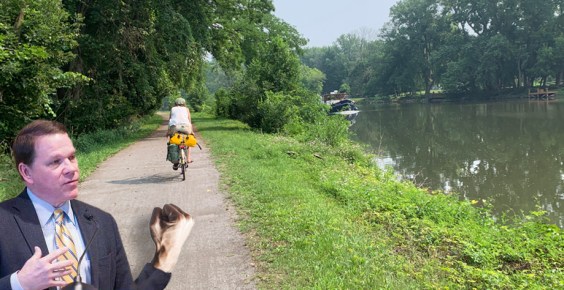The red light camera program in suburban Suffolk County will expire in December because state lawmakers failed to reauthorize the life-saving program this year, a failure that will make Eastern Long Island roads more dangerous, advocates warned.
The cameras installed at 100 intersections have consistently reduced serious collisions over the last decade, according to the county's own stats, and studies show deadly crashes surged by as much as 30 percent in cities that disabled their red light camera programs.
"Suffolk is going to be sorry, and I think you’re going to see crashes go up at intersections, like you saw before," said Cynthia Brown, director of the Long Island-based New York Coalition for Transportation Safety.
State and local politicians blamed each other for the failure to pass a reauthorization bill that would allow automated enforcement after the current program expires on Dec. 1, reported Newsday, which first uncovered the program's slated demise.
The suburban paper focused almost entirely on the $8.1 million in foregone ticketing revenue, not on the program's safety benefits, a skewed view widely held on the island, said another local advocate.
"It’s really not a money grab, it’s to diminish crashes at these locations," said Daniel Flanzig, an attorney focusing on pedestrian and cycling crashes, and a legal advisor for the New York Bicycling Coalition.
The cameras issued 357,732 red light tickets last year — or roughly 3,577 tickets per intersection, or close to 1,000 tickets per day — according to County Executive Ed Romaine's office, and lawmakers could still renew the 15-year-old program if they reconvene at the State Capitol for a special session, for example to figure out what to do about Hochul's congestion pricing debacle.
"It truly is a beneficial program and it’s going to be a public safety issue if it’s not renewed," said Flanzig.
Serious crashes down
The cameras have consistently cut down on the most dangerous crashes over the past decade, including wrecks that have injured people, according to yearly reports published by the County and an outside review.
Even the yearly ticket revenue Newsday cited shows a steady downward trend, dropping by more than half from $20.4 million in 2017 to $8.1 million this year, indicating drivers are following the law more at intersections where the enforcement tech is set up — a trend that mirrors what New York City has found with its red light system.
Without the cameras there would have been two more deaths at the automated enforcement locations and 169 more injuries over three years, according to an independent review commissioned by the county in 2017, leading the authors to argue that it "should be continued due to a reduction in crashes resulting in injury or fatality."
On a national level, the cameras reduced fatal red light running crash rates in large cities by 21 percent, while deadly crashes jumped 30 percent in 14 cities that shut down their programs during 2010-2014, according to the Insurance Institute for Highway Safety.
The latest data for the state's easternmost county show that collisions with injuries continued to decrease at the 100 intersections, down by 10.3 percent in 2021 compared to before the cameras were in place, while dangerous right-angle collisions, better known as T-bone crashes, dropped 8.3 percent, according to an annual report.
By law, the county has to produce a report on its red light camera program every year by June 1, but it has not released anything newer than the three-year-old publication available on its website. The local government's press office did not respond to repeated requests by Streetsblog.
Fender benders rise
Overall crashes were up 15.1 percent in the county in 2021, and the less serious rear-end collisions were up 55 percent, which the report attributed to more distracted driving as motorists increasingly use their smart phones behind the wheel. Tickets for texting while driving and using portable electronic devices surged 10-fold in the county over the past decade, according to the report.
A Federal Highway Administration study chalked up increases in rear-enders at red lights with automated enforcement to more drivers stopping at the signals, causing reckless motorists behind them bump into them.
New York City's Department of Transportation, which recently won the right in Albany to expand its red light cams from 150 intersections to 600, attributed rear-end bump to drivers used to running red lights hitting cars whose operators are following the law.
"Drivers who do not expect traffic signals to be enforced are more likely to run red lights and are also more likely to collide with a car in front of them where the driver is complying with the law," reads DOT's latest report on its program.
The rear-end crashes are especially common after cameras first go in, DOT wrote.
Unlike other jurisdictions, the city, which launched the nation's first red light automated enforcement program 30 years ago, actually registered a 49-percent decrease in rear-end collisions last year along with 65-percent fewer T-bones compared to before the cameras were in place.
Plain old politics
Politicians representing Suffolk at the county and state level might not have wanted to stick their neck out for the ticketing program this session, especially as an automated camera enforcement program for stop arms on school buses has faced pushback on the island, local advocates said.
"It just became exceedingly more controversial after they put in the school bus cameras," said Brown, of the Coalition for Transportation Safety.
There was a Suffolk County red-light extension bill in the Assembly, but no state Senator offered one in the upper chamber. Meanwhile, Suffolk County legislators never sent a so-called "home rule message" to their counterparts in Albany. The local pols told Newsday that didn't pass a home-rule request because the Albany pols didn't have a bill in both houses — but in the end, no pol was forced to go on the record to support the life-saving measure, a classic example of how politics can be the ultimate accountability avoidance machine.
Neighboring Nassau County and New York City were able to secure extensions, and Flanzig said the eastern Long Island politicians just didn't want to put their name on a bill unpopular with their constituents.
"Nobody wants to be the one to sponsor the bill," said Flanzig, of state lawmakers. "The public looks at this thing as money grab, and they never look at the safety aspect of it."
Rochester outright ended its red light camera program in 2016, and the Western New York city's then-Mayor Lovey Warren justified the move by saying the scofflaw snappers were disproportionately targeting drivers in poor neighborhoods.
Leading New York City pols have made similar arguments about speed- and red-light cameras unfairly targeting low-income communities of color here.
But as Streetsblog reported in detail, the technology is evenly distributed in the city — but more people in poorer areas are ticketed because roadways in poorer neighborhoods are disproportionately filled with dangerous highway-like streets that enable more reckless driving.






